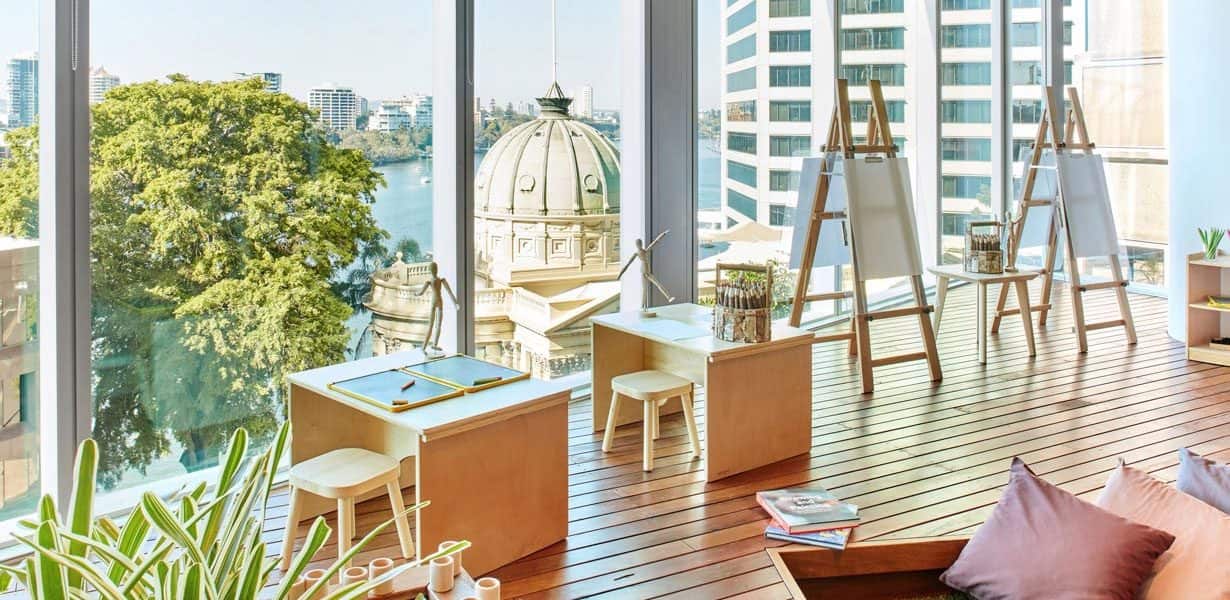Centre Ratings: What Do They Mean?

Although there are many things that contribute to an amazing early learning journey for your children, understanding the government’s National Quality Standard (the benchmark for care) and how each centre measures up is a good place to start.
Once a childcare centre gains approval to open its doors, it is subjected to ongoing assessment under the National Quality Framework (NQF). This framework sets a high benchmark for early childhood education and care. It also helps families make sound decisions around the type of care they want for their children.
How is each centre assessed?
All services are given an overall rating based on their performance in seven key quality areas, which are important to the learning outcomes of children.
These areas are set out by the National Quality Standard (NQS) and include things like staff-to-child ratios and how these are organised, whether the centre offers a stimulating and engaging daily program for children, whether the environment is safe and sustainable, and how the centre involves and collaborates with its local community.
Here are the seven areas in which centres are assessed:
1. Educational program and practice
Does the centre maintain a program or curriculum that enhances each child’s learning and development? Is this organised in a way to give access to every child within the centre and maximise learning for each individual?
Our Curriculum is inspired by the Reggio Emilia approach where children are involved in meaningful play-based learning in areas that are of interest to them. At some centres, this has translated to a ninja warrior course or vegetable garden, while others have chosen to celebrate a range of cultural holidays to mark the diversity and interests of every child.
2. Children’s health and safety
Is each child’s health promoted via healthy eating and physical activity? Is each child protected and supported? Are children adequately supervised at all times?
At Guardian, we like to celebrate healthy eating via a range of cooking and eating experiences, as well as general education around good foods. Read more about nutrition at our centres. We also provide plenty of opportunities for children to engage in physical activity with appropriate levels of risk in order to challenge and develop children’s skills.
3. Physical environment
Is the centre designed to provide a safe and stimulating environment? Or is it a concrete box with little opportunity for children to explore and play? Do the facilities offer access and participation for all children? Does the physical environment promote independent exploration and learning through play?
At Guardian we believe that the environment is the third teacher and plays a big part in the experiences and learning in children. Centres have a range of environments to stimulate and inspire children and we place a lot of importance on highly considered room set ups.
4. Staffing arrangements
Does staffing meet and/or exceed child-to-educator ratios? Do staff members work to enhance children’s learning and development? Do interactions convey mutual respect with each individual child?
In addition to satisfying or exceeding ratios, our educators encourage children to learn through a range of experiences and to exercise control over their day according to their individual interests.
5. Relationships with children
Do staff and management maintain a respectful and equitable relationship with every child within the centre? Are interactions with children warm and trusting? Are children supported and encouraged to build similarly respectful and trusting relationships with each other?
Staff at Guardian create an open dialogue regarding every child through conversation with families and a private app where we encourage comments and feedback from parents to maximise their relationship with each individual.
6. Collaborative partnerships with families and communities
Are families supported in their role? Are their beliefs respected within the centre? Does the service collaborate with outside organisations and groups to enhance children’s awareness of their local community? Do they offer access to support and further education assistance?
Many of our centres engage in visits to local community and aged care centres, as well as visiting local primary schools, libraries, and cafes. We take pride in creating community connections as well as strong bonds with families.
7. Leadership and service management
Does leadership promote a positive culture within each centre? Is there a commitment to continued improvement within the centre? Are there any ongoing training and educational opportunities for staff? Do administrative systems allow for effective management of the centre?
Educators are celebrated, acknowledged and valued at Guardian. Team members are also encouraged to pursue further learning as part our focus on supporting professional and personal development. Read more about careers at Guardian.
Once centres are assessed, they will receive one of the following ratings:
Excellent
Centre has exceeded the NQS in all of the seven quality areas.
Exceeding National Quality Standard
Centre has exceeded the NQS four or more of the seven quality areas.
Meeting National Quality Standard
Centre has met all of the elements in the NQS and might excel in some areas.
Working Towards National Quality Standard
Centre has not met one of the elements in the NQS.
Significant Improvement Required
Service fails to meet requirements to an extent that poses risk to the health, wellbeing and safety of its children. Centre must work with a regulator to improve its quality or risk losing its license.
Provisional
Centre is yet to be assessed against the NQS. This is usually the case for newly opened centres.
Find your local Guardian Childcare & Education Centre and book a tour here.
Looking for the right Childcare Centre for your Family?
Submit your details and a member of our Concierge Team will be in touch to discuss what you need and how we can help you experience something more than childcare.
We'll be in touch soon.




